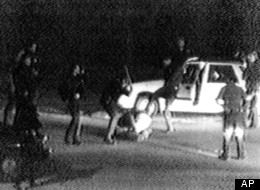 In a ruling that has largely gone unnoticed, the U.S. Supreme Court rejected an appeal from the Cook County state’s attorney that criminalized the recording of police officers while on duty.
In a ruling that has largely gone unnoticed, the U.S. Supreme Court rejected an appeal from the Cook County state’s attorney that criminalized the recording of police officers while on duty.
In rejecting the appeal, the high court leaves in place the lower court of appeals ruling that banned the enforcement of an Illinois anti-eavesdropping statute forbidding the recording of police officers in public. Under the statute, taping law enforcement officers was a felony in Illinois that carried up to 15 years in prison.
The state’s attorney’s office had argued that audio recording of the police in public was not protected by the First Amendment right to free speech. The ACLU had challenged the statute.
Most of us remember the infamous 1991 videotaping of LAPD officers beating Rodney King. The incident highlighted the racial tensions between law enforcement and minorities across the United States. Since then, videotaping and the posting of those videos on YouTube has become commonplace.
Still, police across the country don’t like to be recorded, and the reason is obvious. Take the example last November of the video of a campus officer at the University of California at Davis pepper-spraying student protesters. When the video went viral, the university was pressured to suspend the chief of police — who later resigned — and two officers.
Forty-eight states had previously passed laws making it legal to openly record on-duty police, as long as you didn’t physically interfere with their work. However, twelve states-California, Connecticut, Florida, Illinois, Maryland, Massachusetts, Michigan, Montana, Nevada, New Hampshire, Pennsylvania, and Washington-require the consent of all parties to record a conversation.
So while the legal tide now appears to be turning in favor of the right to take video of the police, those with cameras and recording devices should understand that police in some parts of the country could still arrest citizens for doing just that.
